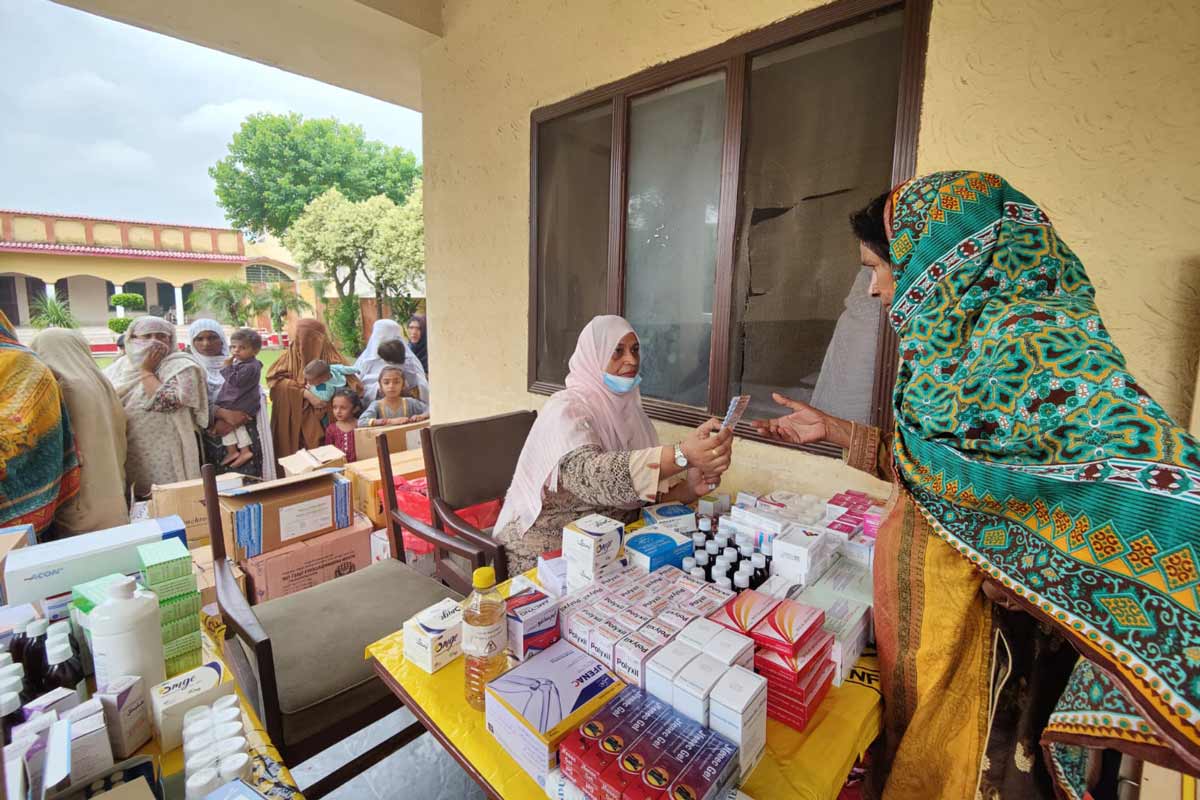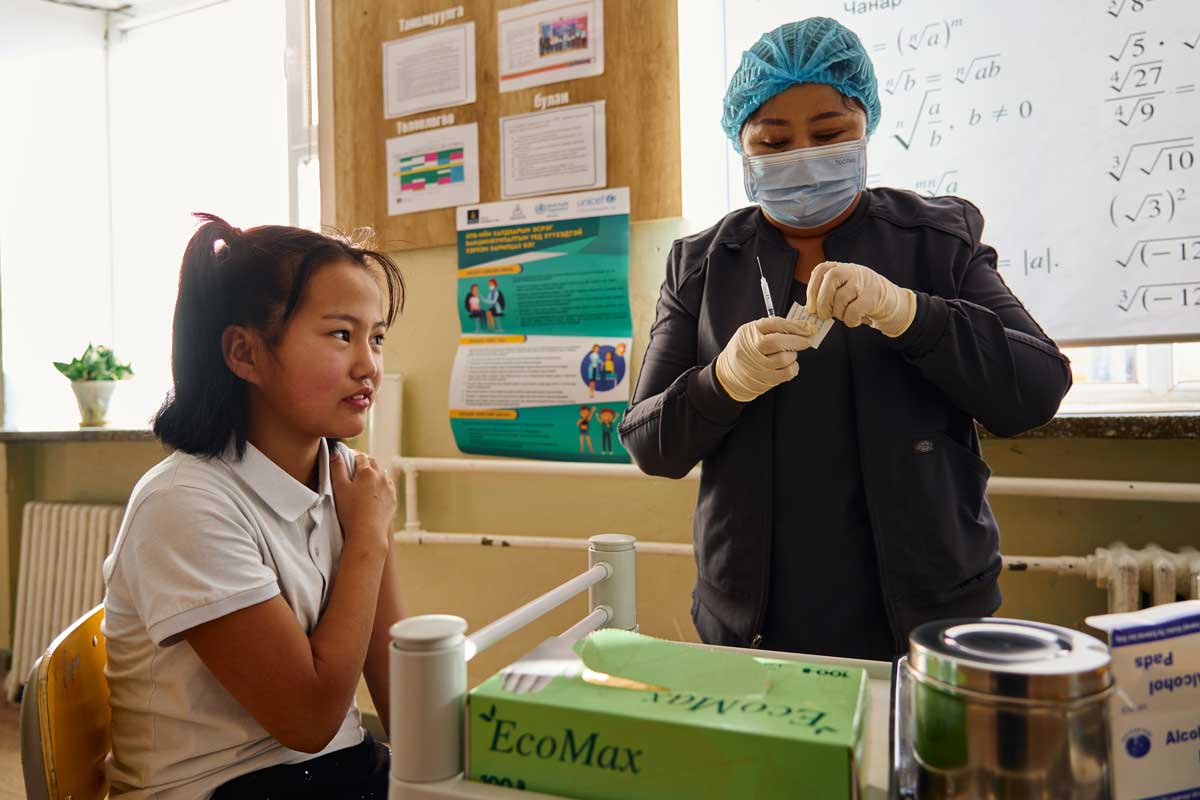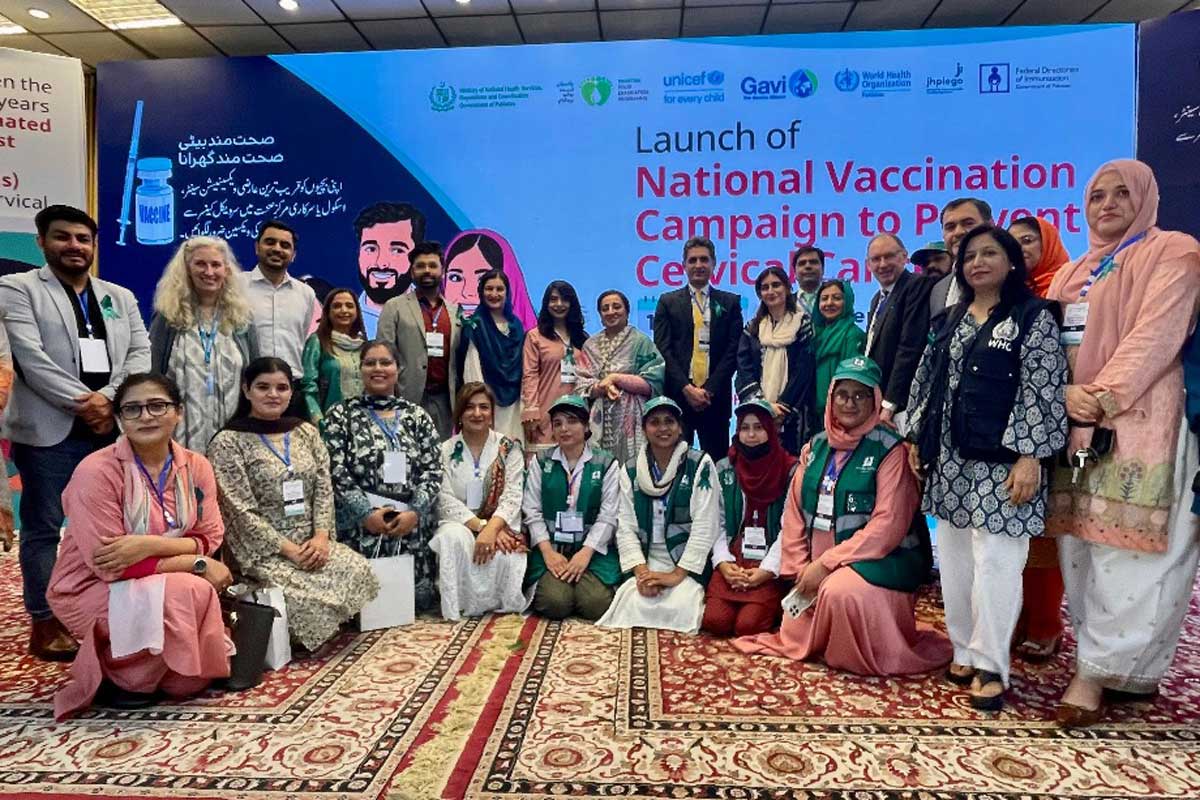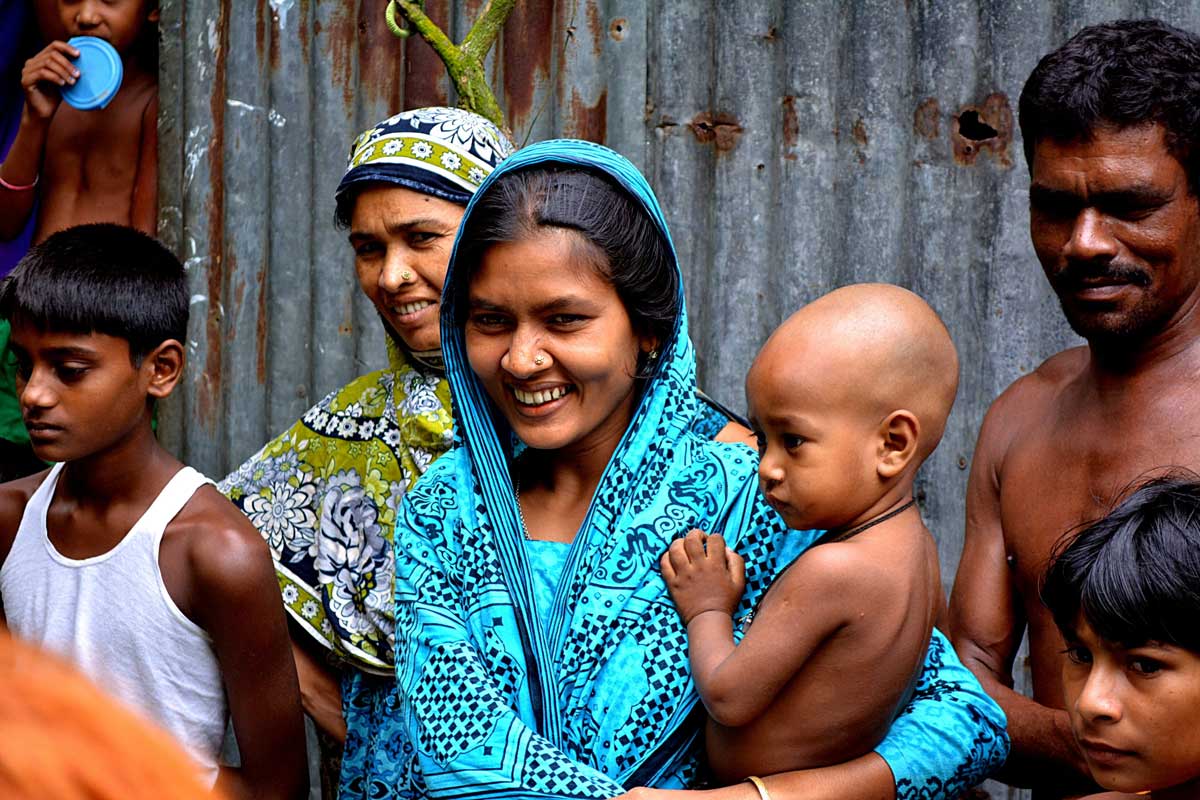Floods in Khyber Pakhtunkhwa raise the risk of disease, but the health system is fighting back
Tens of thousands of people have been displaced by flooding in the northwestern province, but vaccination teams are scrambling to head off the risk of outbreaks.
- 19 September 2025
- 5 min read
- by Rahul Basharat Rajput
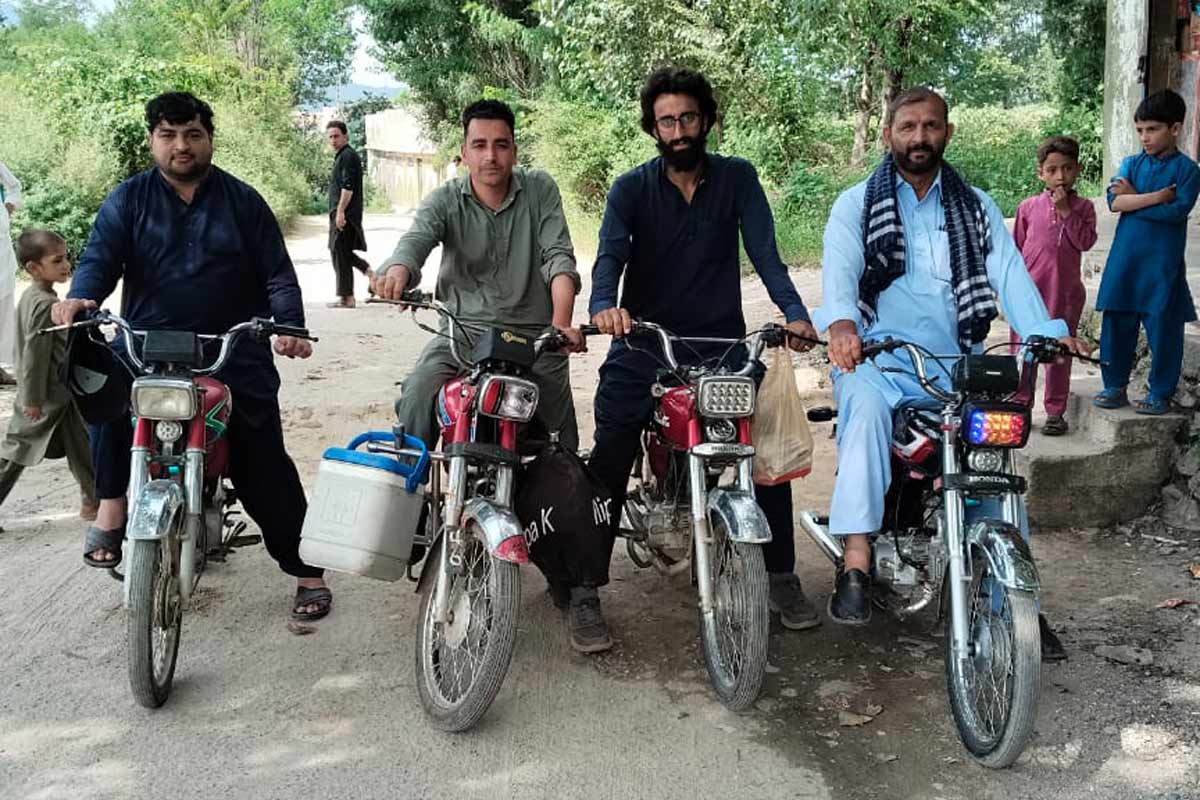
Seventy-year-old Rizwanullah from Battagram district in Pakistan’s northwestern Khyber Pakhtunkhwa province saw his village all but wash away this monsoon.
Flash floods tore through several villages in the area in August. Dozens of people lost their lives. Countless houses and other structures were destroyed. Even days after the disaster, this mountainous region – known, in better times, for its natural beauty – still echoed with grief and pain.
Across Khyber Pakhtunkhwa, heavy rains caused 396 deaths, 190 injuries, and destroyed over 2,113 homes and 266 schools. A total of 23,430 people have been displaced, out of which 3,905 families have been relocated to various shelters. The Provincial Disaster Management Authority (PDMA) declared nine districts in the province – Buner, Shangla, Swat, Mansehra, Bajaur, and Battagram – disaster-hit areas.
Countrywide, 2.5 million people have been displaced by the monsoon deluges. Rizwanullah, now living in a government-established temporary camp with his family, is one of them.
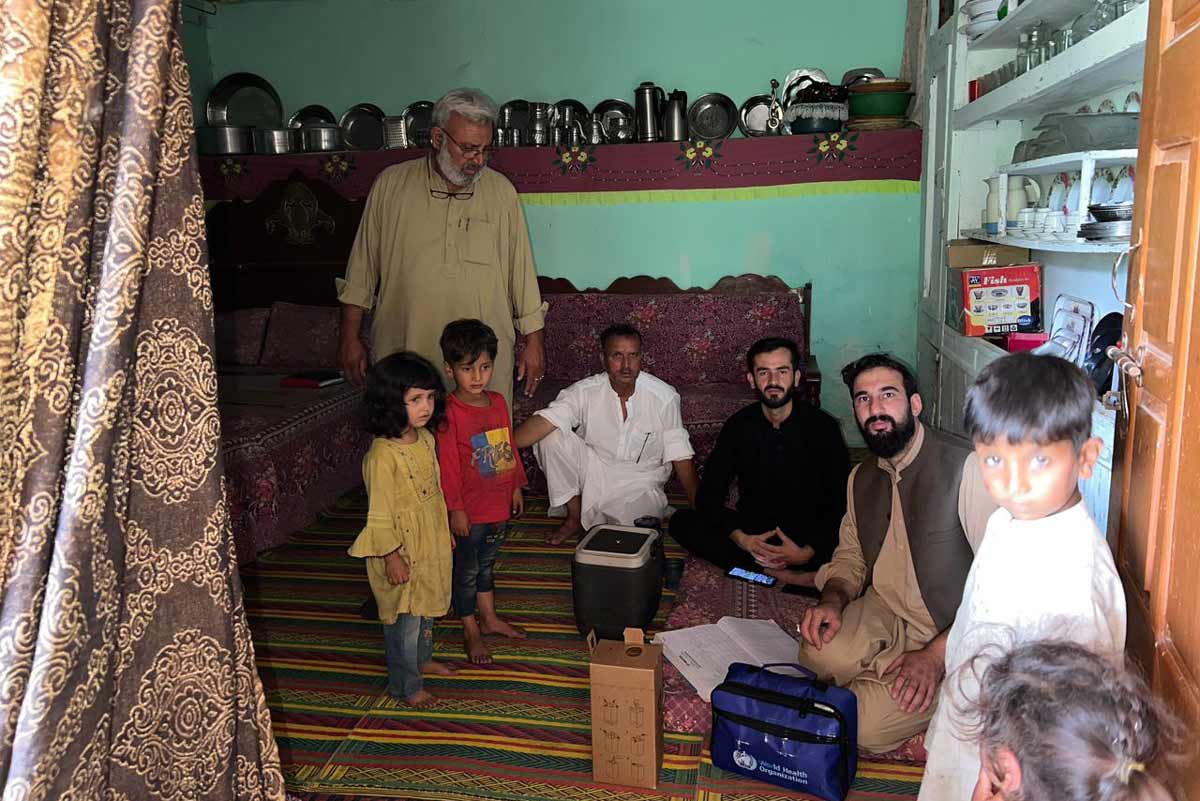
Knock-on peril
You don’t need to be a septuagenarian like Rizwanullah to remember how health threats mount even as the rains slow down. This year’s crisis recalls the disastrous floods of 2022, which affected 33 million Pakistanis, and from which parts of the country are still trying to recover.
To prevent disease outbreaks, Khyber Pakhtunkhwa’s provincial health department launched urgent measures in the affected areas. They’ve had to move fast: Dr Asghar Khan, Director of the Expanded Programme on Immunization (EPI) in Khyber Pakhtunkhwa, said in the flood-affected areas, 25 EPI centres and 14 ice-lined refrigerators were damaged, and more than two dozen measles cases had been reported at the time of writing.
“We immediately dispatched mobile workshops and mobile vaccination teams to start work in those areas,” he said. Special teams were also dispatched to mountainous and hard-to-reach villages to vaccinate children.
One such team visited Rizwanullah’s camp to administer a measles booster dose to his 15-month-old granddaughter, Ruqqaiyah.
Despite fear and sadness in his eyes, Rizwanullah greeted them with poise. “We lost everything, but thanks to God our children are with us,” he said.
He expressed gratitude to the health teams, noting that even in such difficult times, they reached out to families and continued vaccinating children.
“We and the vaccination teams both worry that after this disaster, our children might fall prey to diseases. We want them to remain healthy. May God ease our hardships.”
Reaching children over mountains and through mud
Dr Nasir Shah Kakakhel, EPI Coordinator in Mansehra district, told VaccinesWork that three union councils – Hilkot, Mahandri, and Sachan Kalan – had been particularly badly affected, including taking damage to health infrastructure.
“These areas have many EPI outreach sites, but the problem is that access routes were washed away by the flash floods,” he explained.
Even so, considering the urgency of the situation, the district EPI programme formed special mobile teams. They managed to reach affected families on foot and by motorbikes through difficult terrain, ensuring that vaccination continued without interruption.
According to Kakakhel, alongside other vaccines, children are being given measles booster shots to prevent outbreaks. He said BCG, pentavalent, rotavirus and typhoid vaccines are also being administered, with over 700 children vaccinated so far in the affected union councils.
Talking about the community’s response, Kakakhel said, “It was very surprising for us that even in such tough conditions, people’s response to vaccinating their children was overwhelmingly positive.”
He added that his teams received supportive and encouraging responses everywhere, never faced shortages of vaccines, and any used stock was quickly replenished.
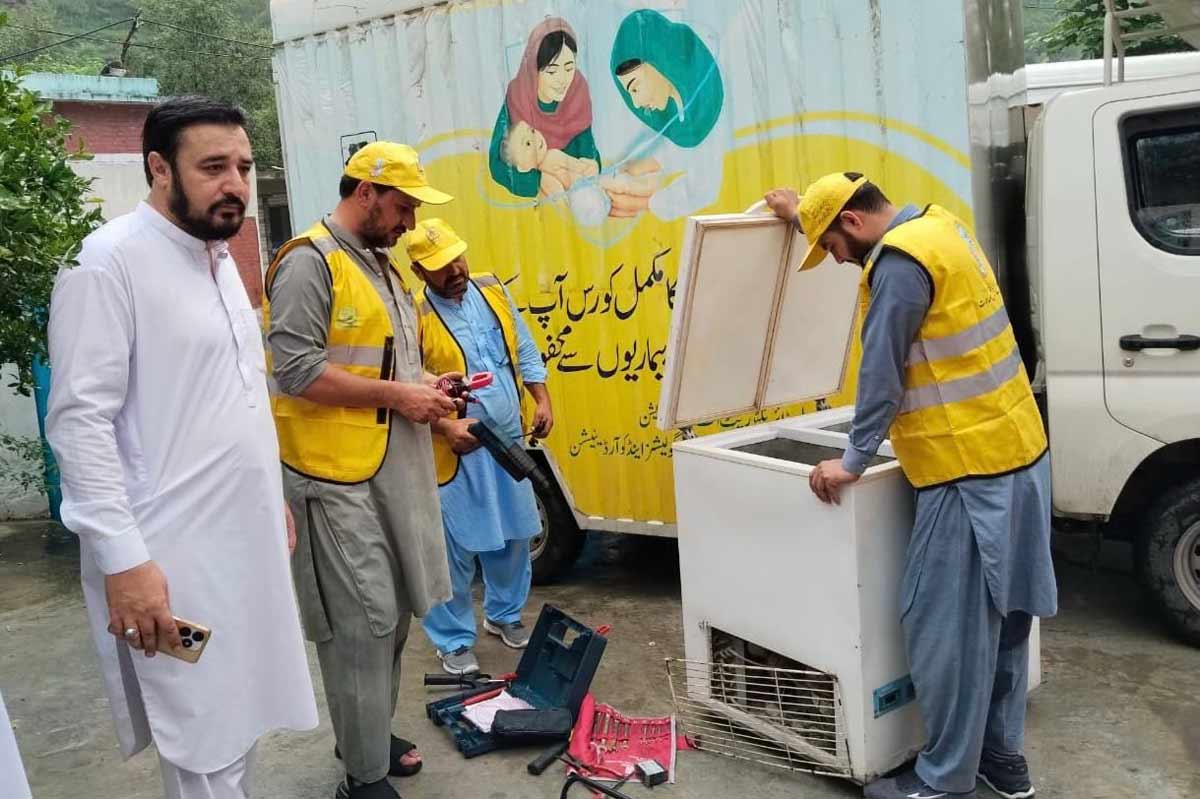
Climate frontline
Pakistan is on the climate change frontlines, says Aftab Alam, a Climate and Development Strategist heading the organisation Resilient Future International (RFI), and the ongoing floods are largely attributable to the phenomenon, which is observably spurring erratic weather shifts.
“This year, Pakistan received less than 50% of the usual rainfall, which has impacted health and agriculture in multiple ways,” he said. However, he added that in mid-August, rainfall was 50–60% higher than the average.
Alam notes that the impact of those changes on people is only on the increase. Both provincial and federal action plans on climate change emphasise empowering communities to cope with emerging challenges, he added.
Current conditions create opportunities for the spread of diseases such as dengue, malaria, diarrhoea and other health problems. “Nature has surprised us. If we look at the testimonies of affected people in the districts of Khyber Pakhtunkhwa, many were astonished by the extent of the damages,” he said.
Have you read?
Federal and provincial support on the ground
Not only provincial authorities, but also the federal Ministry of Health scrambled to send medicines and vaccines to support flood-hit populations in Khyber Pakhtunkhwa.
According to a statement by Federal Health Minister Mustafa Kamal, supplies included 150,000 doses of pentavalent vaccine, 250,000 doses of measles-rubella vaccine, and 30,000 primaquine tablets, used for malaria prevention.
He said the federal government is in close coordination with the province, and all health institutions are on alert to respond to the emergency.
Talking about the coordination with federal health ministry and the strategies to continue vaccination in flood hit areas of the province, Dr Khan told VaccinesWork that all routine vaccines are currently available in the province, and where shortages did crop up, the federal government provided additional supplies.
Dr Khan said special teams from the provincial level also assessed the damage adding that in some places, vaccine vials were spoiled, but replacements were sent promptly.
“Now all flood affected districts have vaccines for children and our teams are on ground to vaccinate all children,” he said.

